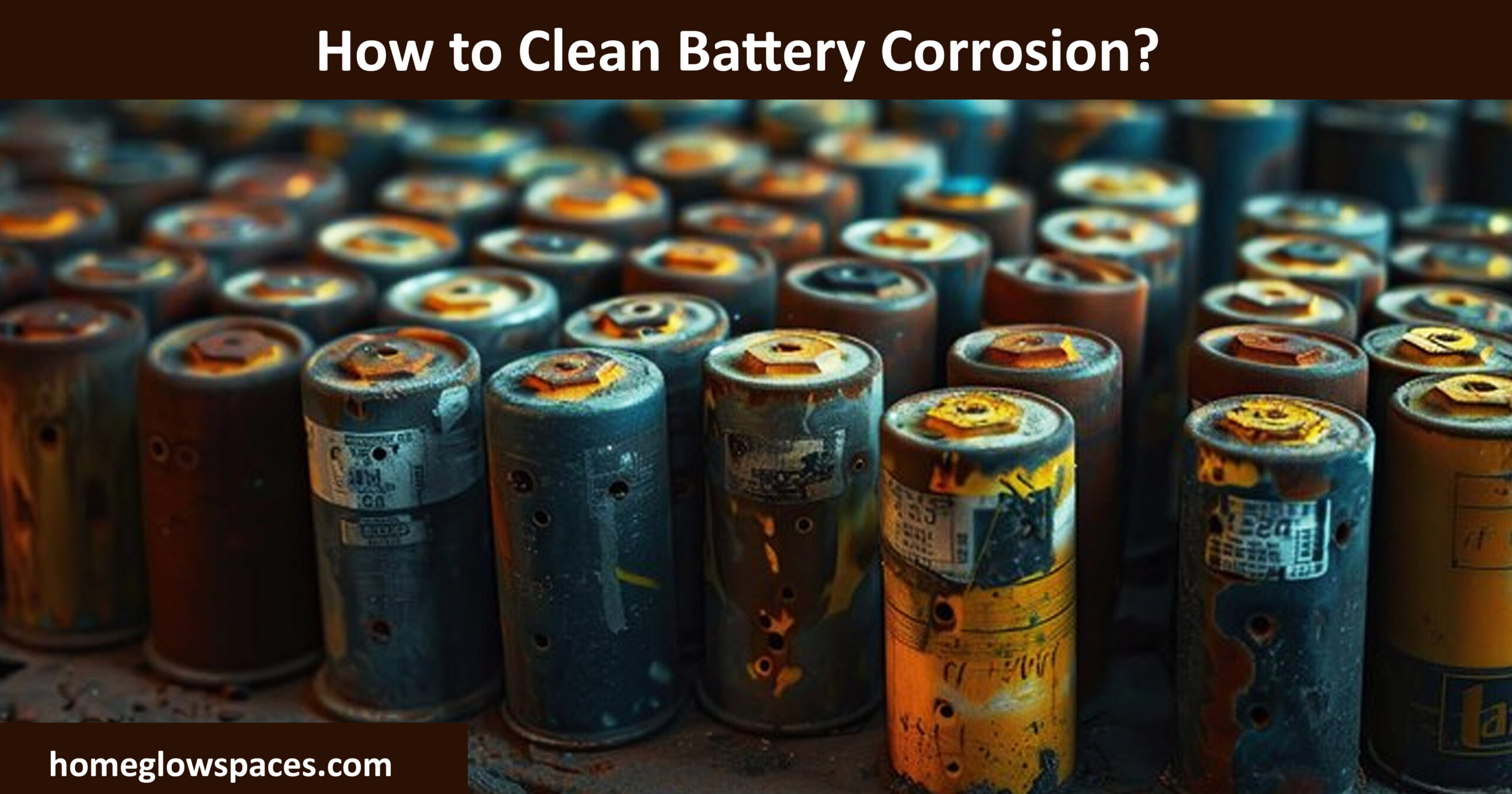Introduction
Battery corrosion is a common problem. It looks like white, powdery residue on the battery terminals. It can stop your devices from working properly. This guide will teach you how to clean battery corrosion and keep your batteries in good shape.
Types of Batteries That Can Corrode
Car Batteries
Car batteries are big and powerful, but they can still corrode. Corrosion can make your car hard to start.
Household Batteries
Small batteries, like those used in remote controls, can corrode too. It usually happens when the batteries are left in the device for a long time.
Rechargeable Batteries
Even rechargeable batteries can corrode if they’re not cared for properly.
What Causes Battery Corrosion?
Chemical Reactions Inside the Battery
Corrosion happens when chemicals inside the battery leak. Over time, these chemicals build up on the outside of the battery.
Environmental Factors
Things like heat and humidity can speed up battery corrosion.
Overcharging and Undercharging
If you overcharge or undercharge a battery, it can cause it to leak and corrode.
Signs of Battery Corrosion
If your battery has white or bluish-green residue, that’s corrosion. The device might not work as well, or it could stop working completely. You might also notice strange smells from the battery.
Why You Should Clean Battery Corrosion Immediately
Cleaning battery corrosion right away can stop the damage from getting worse. It can help your device work better and last longer. Plus, it’s safer!
What You’ll Need to Clean Battery Corrosion
Here’s what you’ll need:
- Baking soda
- Water
- A small brush or old toothbrush
- Cotton swabs
- Gloves for safety
- A clean cloth
Step-by-Step Guide to Cleaning Battery Corrosion
Step 1: Power off the Device
Always turn off your device before working with the battery. This keeps you safe.
Step 2: Remove the Battery
Take the corroded battery out of the device.
Step 3: Inspect the Battery Compartment
Look inside the device to see how bad the corrosion is.
Step 4: Clean with Baking Soda and Water
Use it to clean the corroded areas. The baking soda will neutralize the acid in the corrosion.
Step 5: Use a Brush or Cotton Swab
Dip a small brush or cotton swab into the baking soda paste and scrub the corroded areas. Be gentle!
Step 6: Let It Dry
After cleaning, let the area dry before putting the battery back in. Use a clean cloth to wipe away any extra moisture.
Alternative Methods to Clean Battery Corrosion
You can also use vinegar or lemon juice instead of baking soda. They both work well for cleaning corrosion.
How to Prevent Battery Corrosion in the Future
To stop battery corrosion from happening again:
- Don’t leave dead batteries in devices for too long.
- Use anti-corrosion sprays or pads on car batteries.
Common Mistakes to Avoid While Cleaning Battery Corrosion
Using too much liquid: This can damage your device.
- Ignoring safety precautions: Always wear gloves and work in a ventilated area.
- Forgetting to clean the battery terminals: This is important for good contact between the battery and the device.
When to Replace a Corroded Battery
If the corrosion is too bad or the battery doesn’t work even after cleaning, it’s time to replace it.
How Battery Corrosion Affects Different Devices
Cars
Corroded car batteries can stop your car from starting or make it unreliable.
Electronics
Devices like remote controls or toys can stop working if the battery terminals get corroded.
Safety Tips for Handling Corroded Batteries
Always wear gloves when handling corroded batteries. Dispose of them properly, as they can be harmful to the environment.
Can Battery Corrosion Be Reversed?
In some cases, you can clean the corrosion and use the battery again. But if it’s too far gone, you’ll need to replace it.
Conclusion
Battery corrosion can be a hassle, but it’s easy to clean if you know how. By taking care of your batteries, you can keep your devices working well for a long time. Remember to check your batteries regularly, clean any corrosion, and follow the safety tips!
FAQ’s
How often should I check my batteries for corrosion?
You should check them every few months, especially if they’re not used often.
Can I clean battery corrosion with just water?
No, it’s best to use baking soda or vinegar to neutralize the acid in the corrosion.
What if the device doesn’t work after I clean the corrosion?
If cleaning doesn’t fix the problem, the battery or the device might need replacing.
Can battery corrosion be harmful to my health?
Yes, battery acid can be dangerous.
Is it normal for rechargeable batteries to corrode?
Yes, it can happen if they’re not properly maintained.



